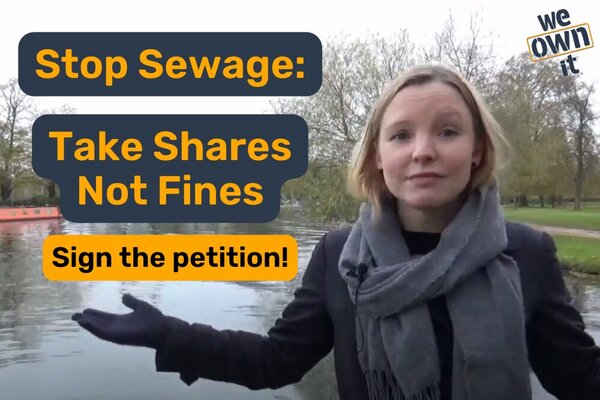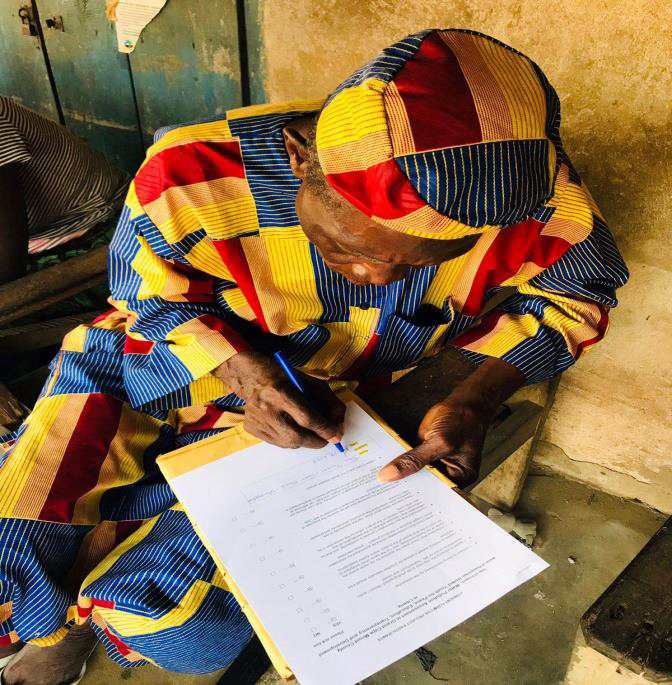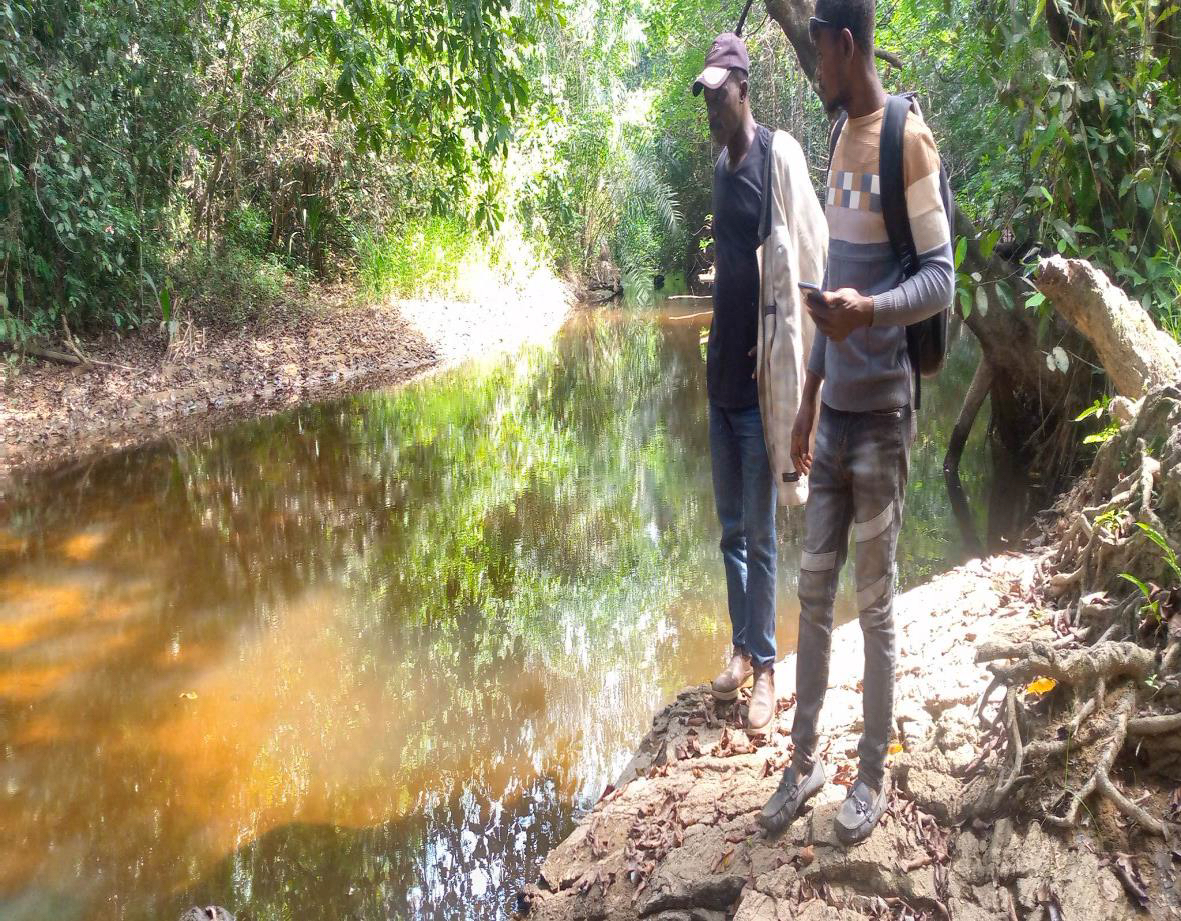July has been an exciting month for activists and civil society advocating for access to water and sanitation. We’re excited to share updates on some of the important and powerful work that End Water Poverty members are doing!
RWSN hosts webinar on community-based & customary water tenure
On 27 June 2023, the Rural Water Supply Network (RWSN) hosted a webinar on the potential of community-based and customary water tenure to provide recognition of communities’ rights to water resources for domestic livelihoods, food security and climate resilience. The webinar, which was packed with customary water tenure experts such as the Food and Agricultural Organization (FAO)’s Sofia Espnosa, International Water Management Institute (IWMI)’s Tafadzwa Mabhaudi and Barbara van Koppen, and Environmental Law Institute (ELI)’s Jessica Troell, highlighted the importance of communities having management and governance powers over their water resources.
“Half the world’s land is stewarded by about 2.5 billion indigenous peoples and local communities that depend on their access to natural resources, including water,” said ELI’s Jessica Troell. “Yet only about 10% of this land is legally vested with those communities. This significantly constrains their ability to pursue locally adapted livelihoods and protect their water resources.” To change this, we need to ensure that communities are able to actively participate in decision-making processes, including decisions about water allocation and use, and are able to access effective remedies if their water rights are infringed.
“We need to decolonise water legislation,” argued IWMI’s Barbara van Koppen. “Water resources should not be viewed as something to which large water users and investors have an entitlement – as it was under colonialism. Instead we should use regulations to ensure we prioritise water use for people, not for profit.”
We Own It petition calls for UK government to take shares from unaccountable private water companies
 On 24 July 2023, EWP member We Own It launched a petition calling on the UK government to hold polluting private water companies accountable by taking shares in these companies into public ownership – rather than making them pay fines. The petition, which has already been signed by almost 10,000 people, is a disruptive call for corporate accountability.
On 24 July 2023, EWP member We Own It launched a petition calling on the UK government to hold polluting private water companies accountable by taking shares in these companies into public ownership – rather than making them pay fines. The petition, which has already been signed by almost 10,000 people, is a disruptive call for corporate accountability.
Since 2020, England’s private water companies have released tons of raw sewage into rivers and seas for over 7 million hours. We Own It says that fining water companies hasn’t been able to bring an end to sewage pollution, with many companies viewing fines as “the cost of doing business”. The organisation points out that in 2021 and 2022 “Northumbrian Water received fines totalling nearly £800,000 over sewage pollution” but “the fines have had little impact with the company paying out £100 million in dividends [to shareholders] last year and having its water rating downgraded by the Environmental Agency.”
By taking shares rather than fines from private water companies, We Own It believes the government can promote accountability, provide a stronger disincentive to pollute and make it cheaper to invest in water infrastructure.
UYPETDL exposes gold mine’s pollution of Liberian communities’ water with cyanide

A community member participating in UYPETDL’s research by completing a survey (2023).
Research conducted by EWP member, United Youth for Peace, Education, Transparency and Development in Liberia (UYPETDL), has contributed to a mounting body of evidence that has exposed how rivers and creeks serving ten rural communities in Grand Cape Mount Country, Liberia have been contaminated with high rates of cyanide.
The pollution of the Mafa and Mavor rivers, which communities and the Liberian Environmental Protection Agency believe to be the result of a chemical spill from a waste facility operated by the Turkish Bea Mountain Mining Corporation (BMMC), has stripped communities of their livelihoods by killing livestock, fish and crops. Almost 5,000 villages that are reliant on the water from these rivers for cooking, fishing and personal hygiene, have been forced to travel long distances to access safe water, with some even having been forced to leave their ancestral homes and lands for good.
While BMMC has denied responsibility for the pollution, it committed to providing emergency water to affected villagers. However, UYPETDL’s investigative report shows that only 38% of the villagers interviewed were able to access this emergency water.
UYPETDL’s report came out of site visits and a human rights training workshop with 100 affected villagers. During the workshop, UYPETDL provided communities with a critical understanding of their rights and provided skills training to strengthen the communities’ ability to advocate for their rights and hold BMMC responsible. UYPETDL’s investigation and engagement with BMMC, the Liberian government, the Environmental Protection Agency and the affected communities continues.

UYPETDL researcher and community members conducting a sit visit (2023).
Find out more about UYPETDL’s work
Calls for justice five years after Lao hydro-electric dam collapse, which killed 71 people
Five years after the tragic collapse of one of the Xe-Pian Xe-Namnoy hydro-electric auxiliary dams in Laos, which killed 71 people, displaced thousands and flooded homes and villages, the communities affected have not received adequate compensation and continue to suffer with the impacts of the disaster. In a joint statement, Manushya Foundation and its partners have called on the corporations and governments involved — including the project developer SK Ecoplant, its operator the Xe-Pian Xe-Namnoy Power Company (PNPC), the Lao government and the Republic of Korea, which provided ODA funding — to take responsibility and fulfil their duty to make reparations.
While PNPC, the official operator of the dam, provided a total of USD 91.2 million for compensation, the vast majority (71%) of this compensation was paid to the Lao government, not the affected communities. The statement alleges that the Lao government used this pay-out to forcibly relocate communities rather than offering the survivors effective reparations for their lost and damaged homes, lands, property and emotional distress.
In August last year, in her testimony for Hearing the Unheard: Mutual Accountability to Realise Water Rights, Nang Noy, an activist who represents an indigenous Khmer-Lao community living along the Sesan river spoke out about the challenges her community faces as a result of the construction of the hydro-electric dam, including devastating floods which threaten their crops, livestock and, at times, even their lives.
She specifically highlighted the need for UN and international law bodies to assist affected communities in enforcing the payment of compensation: “Normally when there is a development along the river, the impact downstream on people’s lives does not seem to be taken into account and recognised when considering the compensation plan. This usually means that the community can evacuate to the safe area, but their farms, cattle and livelihoods cannot be moved, so every time there is flash flooding, like this year, the community lose their livelihoods and agriculture. Who is responsible to ensure that the proper compensation mechanisms are enforced?”
Watch an edited version of her testimony as part of the #HearingTheUnheardHRWS campaign below.
What else is new?
- ESCR-Net and partners win the UN Human Rights Prize: The Global Coalition of Civil Society, Indigenous Peoples, Social Movements, and Local Communities for the Universal Recognition of the Human Right to a Clean, Healthy, and Sustainable Environment, which EWP member ESCR-Net is part of, is one of the recipients of the 2023 United Nations Human Rights Prize. The coalition was awarded the prize for its role in advocating for the recognition of the right to a healthy environment by the UN General Assembly in July 2022. Read more here.